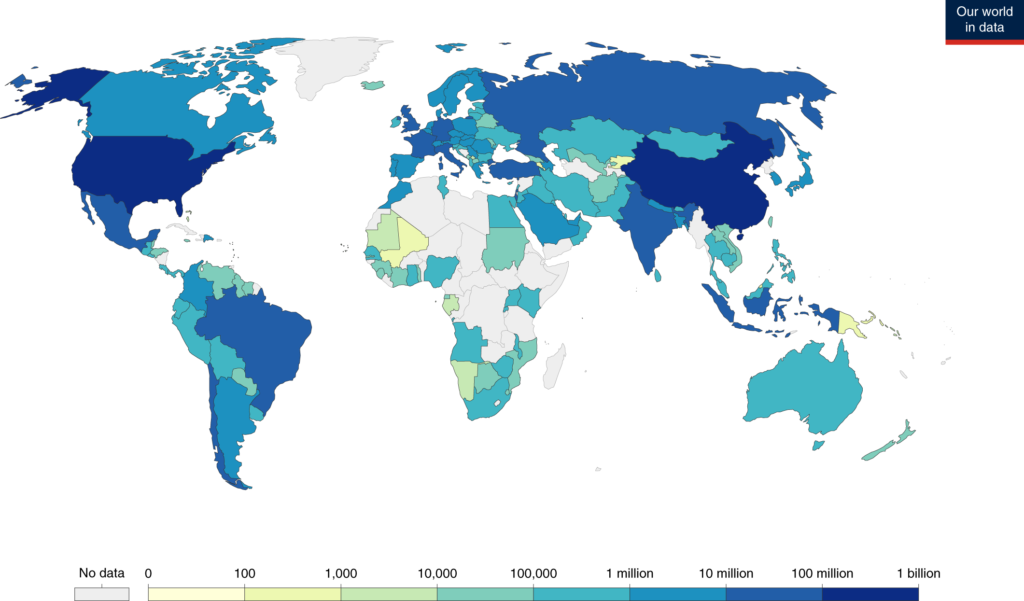The COVID-19 pandemic has exposed significant vulnerabilities in health infrastructures worldwide, highlighting the urgent need for strengthening global health systems. As countries work to recover and prevent future crises, the focus is shifting toward building more resilient healthcare systems that can provide equitable access to vaccines, essential care, and mental health support. This article explores how the pandemic has shaped efforts to strengthen global health systems and what steps are needed to ensure a healthier future for all.
The Vulnerabilities Revealed by the COVID-19 Pandemic
Before the pandemic, many countries had made significant progress in public health. However, COVID-19 underscored the gaps that existed in global health systems, particularly in terms of preparedness and response to large-scale health crises. Many nations, especially low- and middle-income countries, faced severe shortages in healthcare workers, essential medical supplies, and infrastructure.
One key challenge was the lack of universal health coverage in many regions. Strengthening global health systems means ensuring that every individual, regardless of their income or geographic location, can access the care they need in times of emergency. The pandemic made it painfully clear that without a solid foundation, health systems would struggle to respond effectively.
Strengthening Global Health Systems Through Equitable Vaccine Access
The rapid development of COVID-19 vaccines was one of the greatest scientific achievements of our time. However, the distribution of these life-saving vaccines revealed another stark divide in global health. While wealthier countries secured millions of doses, low-income nations struggled to get enough supplies. This disparity sparked international debates on vaccine equity and the need for mechanisms like COVAX to ensure vaccines reach all corners of the globe.
Ensuring equitable access to vaccines is not only about addressing immediate needs but also about creating a more resilient global health system. Strengthening global health systems includes putting in place infrastructure that ensures countries can handle large-scale vaccination campaigns during pandemics and other health emergencies.

Mental Health: The Silent Crisis Exacerbated by the Pandemic
The COVID-19 pandemic also placed a significant strain on mental health systems worldwide. Lockdowns, fear of illness, and economic uncertainties took a heavy toll on the mental well-being of millions of people. As hospitals and health services were overwhelmed with COVID patients, mental health services were often deprioritized, exacerbating the situation.
It is clear that strengthening global health systems requires integrating mental health into the core of health policy. The pandemic has highlighted the need for accessible mental health care that can respond quickly and effectively during times of crisis. Governments and organizations must invest in expanding mental health resources, both in terms of accessibility and funding.
Strengthening Global Health Systems: A Path Toward Resilience
The road to strengthening global health systems is long and challenging, but it is a journey we must undertake to prepare for future pandemics. Several key areas require urgent focus:
- Investment in Health Infrastructure: Governments and international organizations must prioritize investments in health infrastructure. This includes expanding healthcare facilities, improving medical supply chains, and increasing the number of trained healthcare workers worldwide.
- Universal Health Coverage: To truly strengthen global health systems, universal health coverage must become a global priority. Every individual should have access to quality health services, no matter where they live.
- Improved Pandemic Preparedness: Countries must adopt strategies that improve preparedness for pandemics. This includes establishing emergency medical systems, stockpiling vaccines and medical supplies, and creating international frameworks for rapid response.
- Global Collaboration: No country can tackle health crises alone. Strengthening global health systems requires unprecedented collaboration between governments, international organizations, the private sector, and civil society. By sharing knowledge, resources, and expertise, we can create a more unified approach to global health.
Conclusion: A Call to Action for Global Health
As we move beyond the immediate threat of COVID-19, we must remember the lessons the pandemic has taught us about the fragility of global health systems. Strengthening global health systems is not just about fighting the next pandemic but ensuring that every person, everywhere, has access to the care they need.
The pandemic has shown us what happens when health systems are not adequately prepared, and it has highlighted the urgency of making lasting changes. Now is the time to act. The global community must unite to invest in the infrastructure, policies, and resources needed to create resilient and equitable health systems for all.
Let’s use this moment as a turning point to build a healthier, more prepared world for future generations.







More Stories
IndiGo Plunges Into Crisis: Questions Over Airline Planning
Asia at Boiling Point: How Weather Is Rewriting the Region’s Future
Maithili Thakur: From Folk Singing Sensation to Rising Political Star